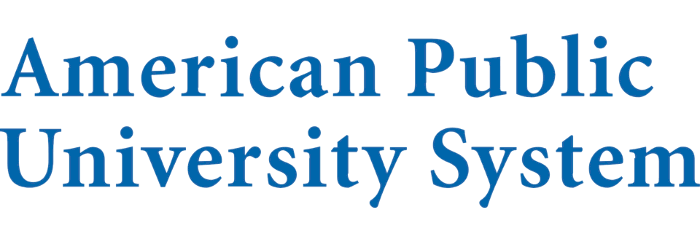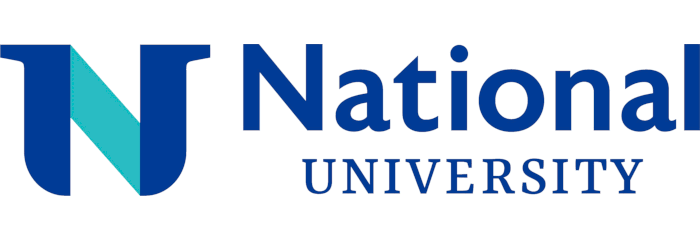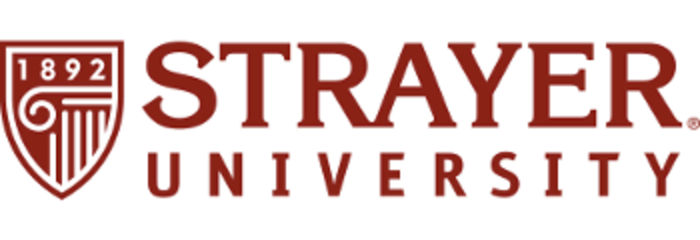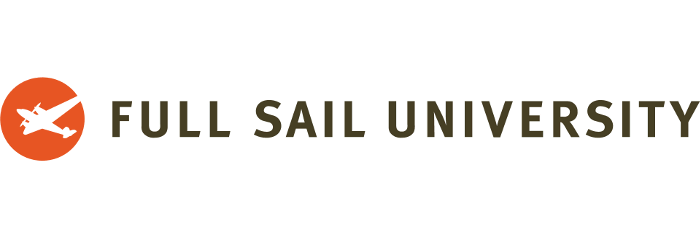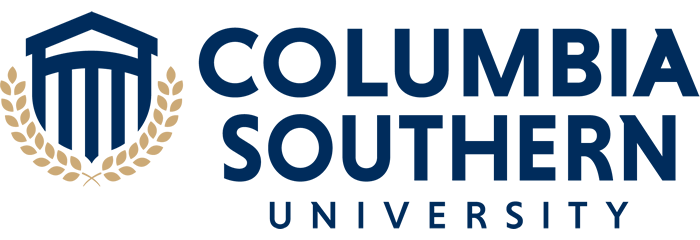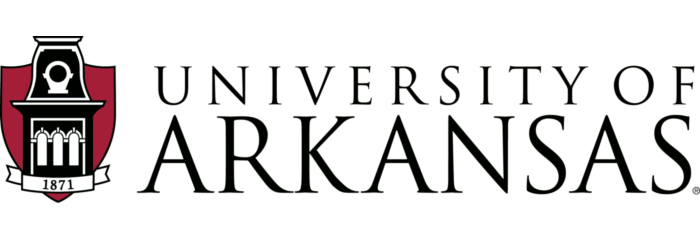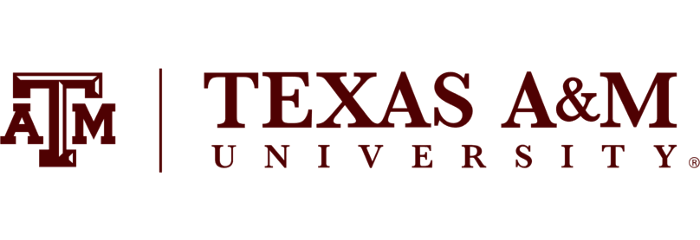2025 Best Military-Friendly Online Colleges
ON THIS PAGE
Overview Financial Aid Military Families FAQsA military-friendly school is one that actively seeks to support current service members, veterans, and their families. To determine this updated list of the top military-friendly online colleges for 2024, researchers on the OnlineU team evaluated more than 2,600 schools designated as Yellow Ribbon participants according to the latest data from the NCES' Integrated Postsecondary Education Data System (IPEDS).
In order to be eligible to be featured, schools must be noted as signatories of the Principles of Excellence program according to the GI Bill Comparison Tool maintained by the U.S. Department of Veterans Affairs. The schools represented here have also demonstrated a commitment to distance learners by offering both undergraduate and graduate online degree programs.
All featured colleges meet the following criteria:
- Grants college credit for previous military experience
- Has at least 1,250 enrolled students receiving GI Bill® Benefits
- Provides a dedicated point of contact for support services for veterans, military service members, and their families
- Maintains web resources related to Veterans and Military service members tuition policies
Our methodology is designed to highlight schools that are a good fit for military students who are specifically interested in pursuing their education online. You can also check out our overall list of the most affordable military-friendly online colleges for further inspiration.
List Of Accredited Online Military-Friendly Schools
ADVERTISEMENT
Online Programs You May Be Interested In
Annual Tuition: $9,600
78 Programs ( view all )
Annual Tuition: $11,700
166 Programs ( view all )
Annual Tuition: $17,800
61 Programs ( view all )
2025 Best Military-Friendly Online Colleges
American Public University System American Public University System American Public University System American Public University System
- Online Enrollment: 38,969 enrolled
- Annual Tuition: $7,360
- Location: Charles Town (WV)
The American Public University System (APUS) is a private online university system with its headquarters in Charles Town, West Virginia. Over 50 fully online bachelor's degrees are available through APUS, including a Bachelor of Arts in Transportation and Logistics Management, Bachelor of Science in Information Technology, and Bachelor of Arts in Emergency and Disaster Management. Plus, they feature a wide range of security and public safety programs that may be more familiar to military students.
Takeaways for Prospective Military Students - The American Military University (AMU) is an affiliate institution within APUS, where military students are supported in a variety of ways through online resources. APUS already waives application and transfer fees, but for active-duty students, veterans, and their spouses, credit costs can be reduced to $250 per credit. Additional financial support can be found through the eight military-friendly scholarships through APUS and the APU Military Grant, which reduces book costs and technology fees to zero.
Key Metrics:
- GI Bill Enrollment: 20,146 enrolled
- Acceptance Rate: N/A
- Avg. Graduation Rate: 46%
- Retention Rate: 90%
- Recommend Rate: 68%
- Financial Aid Recipients: 88%
- Avg. Aid Package: $5,607
- Repayment Rate: 87%
- School Type: For Profit
University of Maryland Global Campus University of Maryland Global Campus University of Maryland Global Campus University of Maryland Global Campus
- Online Enrollment: 37,793 enrolled
- Annual Tuition: $12,336
- Location: Adelphi (MD)
The University of Maryland Global Campus (UMGC) is a public university in Adelphi, Maryland that specializes in online programs and offers over 30 at the bachelor's level. Some examples include a Bachelor of Science in Web and Digital Design, Bachelor of Science in Management Studies, and Bachelor of Arts in English. Each degree is available to students around the world except for the Bachelor of Science in Nursing, which requires a state nursing license.
Takeaways for Prospective Military Students - For military students, UMGC features a wealth of benefits to help them succeed academically. For example, credit for previous military experience and training is available and the flexible online format of the programs allow students to study online, no matter where they're stationed abroad. Army, Navy, Marines, Coast Guard, and Air Force service members may also receive a reduced tuition rate and financial assistance. Finally, UMGC employs online military advisors and additional advisors who are stationed in military bases around the country for nearby, in–person assistance.
Key Metrics:
- GI Bill Enrollment: 14,147 enrolled
- Acceptance Rate: N/A
- Avg. Graduation Rate: 16%
- Retention Rate: 43%
- Recommend Rate: 60%
- Financial Aid Recipients: 67%
- Avg. Aid Package: $4,213
- Repayment Rate: 91%
- School Type: Nonprofit (Public)
Southern New Hampshire University Online Southern New Hampshire University Online Southern New Hampshire University Online Southern New Hampshire University Online
- Online Enrollment: 116,225 enrolled
- Annual Tuition: $9,600
- Location: Manchester (NH)
Southern New Hampshire University Online (SNHU) is a private university in Manchester, New Hampshire. The virtual branch of the school features nearly 100 online degrees at the bachelor's level. Subjects range from cybersecurity to nursing and include a wide range of degrees, such as a Bachelor of Science in Operations Management, Bachelor of Arts in Sociology, and Bachelor of Science in Criminal Justice.
Takeaways for Prospective Military Students - Military students and their spouses are financially supported through a 30% reduction in their tuition costs. SNHU also accepts tuition assistance through the GI Bill. In addition, military students with disabilities have access to the Online Accessibility Center, where they can receive help with their remote coursework or online forms. Each online program is flexible, and students may finish at home or abroad.
Key Metrics:
- GI Bill Enrollment: 18,729 enrolled
- Acceptance Rate: 78%
- Avg. Graduation Rate: 38%
- Retention Rate: 62%
- Recommend Rate: 61%
- Financial Aid Recipients: 81%
- Avg. Aid Package: $4,434
- Repayment Rate: 93%
- School Type: Nonprofit (Private)
Liberty University Liberty University Liberty University Liberty University
- Online Enrollment: 34,799 enrolled
- Annual Tuition: $11,700
- Location: Lynchburg (VA)
Liberty University (LU) is a private, Christian university in Lynchburg, Virginia. There are over 100 bachelor's degrees available for students, which are delivered 100% online. They're available in the fields of art and science, education, government, aeronautics, law, music, and more. Some examples include a Bachelor of Science in Sports Management, Bachelor of Science in Special Education, and Bachelor of Fine Arts in Graphic Design. There are also several faith-based degree programs in the areas of religion, bible studies, and theology.
Takeaways for Prospective Military Students - Military students at LU can take advantage of discounted tuition rates of $250 per credit. Veterans who are also first responders may receive a discount as well. Further savings is available through the GI Bill's tuition assistance program. Military training may be translated into college credits as well. The flexibility of LU's online programs is designed to fit the on-demand lifestyle of a service member by offering eight different start dates throughout the year.
Key Metrics:
- GI Bill Enrollment: 15,331 enrolled
- Acceptance Rate: 30%
- Avg. Graduation Rate: 62%
- Retention Rate: 79%
- Recommend Rate: 57%
- Financial Aid Recipients: 98%
- Avg. Aid Package: $12,471
- Repayment Rate: N/A
- School Type: Nonprofit (Private)
University of Phoenix University of Phoenix University of Phoenix University of Phoenix
- Online Enrollment: 66,803 enrolled
- Annual Tuition: $9,552
- Location: Nationwide
The University of Phoenix (UoPX) is a private institution in Phoenix, Arizona, specializing in online degrees. There are 35 online bachelor's degrees available. Students can engage in healthcare, business, and education studies with options such as a Bachelor of Science in Business, Bachelor of Science in Information Technology, and Bachelor of Science in Health Administration.
Takeaways for Prospective Military Students - Military students, veterans, and their families can take advantage of flexible online degrees with adjustable schedules to fit deployment and military duties. Credit may be offered for prior military experience, and service fees for textbooks and electronics are waived for qualifying undergraduate students in the military. UoPX boasts that hundreds of military-adjacent careers can be achieved by studying online.
Key Metrics:
- GI Bill Enrollment: 10,327 enrolled
- Acceptance Rate: N/A
- Avg. Graduation Rate: 17%
- Retention Rate: 42%
- Recommend Rate: 61%
- Financial Aid Recipients: 90%
- Avg. Aid Package: $5,716
- Repayment Rate: N/A
- School Type: For Profit
Western Governors University Western Governors University Western Governors University Western Governors University
- Online Enrollment: 107,952 enrolled
- Annual Tuition: $8,010
- Location: Salt Lake City (UT)
Western Governors University (WGU) is a private university located in Salt Lake City, Utah. There are 31 online bachelor's degrees on offer for undergraduate students. Majors include information technology, healthcare, business, and teaching, with programs such as Bachelor of Science in Finance, Bachelor of Science in Software Engineering, and Bachelor of Arts in Educational Studies.
Takeaways for Prospective Military Students - WGU uses competency-based courses, allowing military students to use their experience to advance their placement within online programs. These programs are approved for Military Tuition Assistance. WGU also collaborates with Navy and Air Force community colleges to allow enrolled military students to earn undergraduate degrees in business and IT. Service members and their spouses may be eligible for scholarships, such as the $2,500 Military Appreciation Scholarship or the $4,000 Military Spouse Scholarship.
Key Metrics:
- GI Bill Enrollment: 15,540 enrolled
- Acceptance Rate: N/A
- Avg. Graduation Rate: 49%
- Retention Rate: 65%
- Recommend Rate: 70%
- Financial Aid Recipients: 61%
- Avg. Aid Package: $4,798
- Repayment Rate: 93%
- School Type: Nonprofit (Private)
Arizona State University, Online Arizona State University, Online Arizona State University, Online Arizona State University, Online
- Online Enrollment: 46,764 enrolled
- Annual Tuition: $30,592
- Locations: Tempe (AZ) (and 4 others)
Arizona State University (ASU) is a public research university in Phoenix, Arizona. There are nearly 150 online bachelor's programs to choose from, including those in engineering, nutrition, education, and criminal justice. Students can pursue a Bachelor of Science in Computer Science, Bachelor of Arts in Communication, and Bachelor of Science in Supply Chain Management. Minors are also available for undergraduate students.
Takeaways for Prospective Military Students - As a research institute and military supporter, ASU has conducted studies in collaboration with the Department of Defense and the National Aeronautics and Space Administration. ASU military students and their families may seek financial assistance through the GI Bill and Yellow Ribbon Program, and by using the help of the school's online academic counselors. There are other programs, such as The Veterans Upward Bound, which helps low-income or first-generation ASU students improve their skills, as well as a wealth of military scholarship programs to assist with tuition and other costs.
Key Metrics:
- GI Bill Enrollment: 8,422 enrolled
- Acceptance Rate: 76%
- Avg. Graduation Rate: 66%
- Retention Rate: 85%
- Recommend Rate: 90%
- Financial Aid Recipients: 93%
- Avg. Aid Package: $12,381
- Repayment Rate: 92%
- School Type: Nonprofit (Public)
Embry-Riddle Aeronautical University - Worldwide Embry-Riddle Aeronautical University - Worldwide Embry-Riddle Aeronautical University - Worldwide Embry-Riddle Aeronautical University - Worldwide
- Online Enrollment: 8,445 enrolled
- Annual Tuition: $11,185
- Location: Daytona Beach (FL)
Embry-Riddle Aeronautical University-Worldwide (ERAU) is a private institution in Cincinnati, Ohio, primarily serving aviation and aerospace students. More than a dozen online programs are at the graduate level, with degrees such as Master of Aviation Maintenance, Graduate Certificate in Information Systems Security, and Master of Science in Emergency Services. Only one undergraduate certificate is available in Uncrewed Systems Technology.
Takeaways for Prospective Military Students - Military students can find ERAU campuses at 90 military installations around the world, allowing them to study online with the added benefit of nearby resources and academic assistance. Reduced military tuition rates are available for active duty members, their spouses, and their dependents. ERAU offers a 100% online Associate of Science in Aviation Maintenance in partnership with the United States Naval Community College (USNCC) for active-duty military students.
Key Metrics:
- GI Bill Enrollment: 1,786 enrolled
- Acceptance Rate: 66%
- Avg. Graduation Rate: 20%
- Retention Rate: 59%
- Recommend Rate: 57%
- Financial Aid Recipients: 60%
- Avg. Aid Package: $3,776
- Repayment Rate: 95%
- School Type: Nonprofit (Private)
National University National University National University National University
- Online Enrollment: 4,801 enrolled
- Annual Tuition: $13,320
- Location: La Jolla (CA)
National University (NU) is a private institution headquartered in San Diego, California. There are 49 online bachelor's degrees available, including several minor options. Major options include education, marketing, education, and management, with examples such as Bachelor of Arts in Management, Bachelor of Arts in English, and Bachelor of Arts in Early Childhood Development.
Takeaways for Prospective Military Students - NU supports military students through flexible month-long classes designed with busy active-duty service members in mind. A wide range of resources are available, including scholarships, grants, and other funding options inside and outside of NU. For example, the Whisper Military Spouse Scholarship provides $10,000 in tuition benefits to 25 military students each year. There's also a 24/7 Virtual Veteran Center offering additional support services.
Key Metrics:
- GI Bill Enrollment: 4,776 enrolled
- Acceptance Rate: N/A
- Avg. Graduation Rate: 29%
- Retention Rate: 64%
- Recommend Rate: 47%
- Financial Aid Recipients: 91%
- Avg. Aid Package: $5,932
- Repayment Rate: 93%
- School Type: Nonprofit (Private)
Strayer University Strayer University Strayer University Strayer University
- Online Enrollment: 31,610 enrolled
- Annual Tuition: $13,515
- Location: Nationwide
Strayer University is a private university in Washington, DC, offering undergraduate students five online bachelor's degrees. Offerings include majors ranging from business to information technology. Some degree options include a Bachelor of Applied Science in Management, Bachelor of Science in Accounting, Bachelor of Science in Business Administration, and Bachelor of Science in Information Technology.
Takeaways for Prospective Military Students - Strayer offers college credits for experiences, certificates, training, and exams earned in the military, while veteran students can seek financial assistance through the GI Bill and Yellow Ribbon Program. Spouses of military members are eligible for the Department of Defense's Military Spouse Career Advancement Accounts (MyCAA) program, which offers $4,000 to those pursuing a license, certificate, or associate degree.
Key Metrics:
- GI Bill Enrollment: 6,698 enrolled
- Acceptance Rate: N/A
- Avg. Graduation Rate: 28%
- Retention Rate: 40%
- Recommend Rate: 61%
- Financial Aid Recipients: 48%
- Avg. Aid Package: $3,691
- Repayment Rate: 85%
- School Type: For Profit
Full Sail University Full Sail University Full Sail University Full Sail University
- Online Enrollment: 19,640 enrolled
- Annual Tuition: $26,307
- Location: Winter Park (FL)
Full Sail University is a private institution based in Winter Park, Florida. There are over 20 online bachelor's degrees focused on the fields of entertainment media and technology, such as the Bachelor of Science in Music Production, Bachelor of Science in Computer Animation, and Bachelor of Science in Media Communications. There are also online undergraduate certificates in 3D arts, creative writing, and sportscasting, among other areas.
Takeaways for Prospective Military Students - Regarding military benefits, Full Sail has its own military admissions department that assists active-duty members, veterans, and military spouses during the application process. In addition to the school's Military Student Success Center, which offers a collaborative space for on-campus networking and tutoring, online students can access dozens of financial assistance resources and browse Propeller, Full Sail's online magazine featuring a military edition that covers veteran success stories and military-related events.
Key Metrics:
- GI Bill Enrollment: 4,689 enrolled
- Acceptance Rate: N/A
- Avg. Graduation Rate: 45%
- Retention Rate: 76%
- Recommend Rate: 50%
- Financial Aid Recipients: 78%
- Avg. Aid Package: $8,531
- Repayment Rate: 80%
- School Type: For Profit
ECPI University Online ECPI University Online ECPI University Online ECPI University Online
- Online Enrollment: 6,192 enrolled
- Annual Tuition: $18,484
- Locations: Multiple Locations
ECPI University Online is a private university located in Virginia Beach, Virginia. Its online division offers 28 online bachelor's degrees. Options include Bachelor of Science in Information Technology, Bachelor of Science in Health Sciences, Bachelor of Science in Business Administration, and Bachelor of Science in Criminal Justice. Students can narrow their coursework with specializations in digital forensics, cybersecurity, and healthcare administration.
Takeaways for Prospective Military Students - ECPI is a part of the Yellow Ribbon Program, a federal resource program allowing online students and their families with military backgrounds to seek tuition assistance. Additional financial help is available directly from the school's own scholarship offers, such as ECPI/Imagine America – Military Award Program and ECPI/Imagine America – LDRSHIP Award.
Key Metrics:
- GI Bill Enrollment: 4,191 enrolled
- Acceptance Rate: 71%
- Avg. Graduation Rate: 49%
- Retention Rate: 51%
- Recommend Rate: 46%
- Financial Aid Recipients: 88%
- Avg. Aid Package: $6,001
- Repayment Rate: 88%
- School Type: For Profit
Columbia Southern University Columbia Southern University Columbia Southern University Columbia Southern University
- Online Enrollment: 11,672 enrolled
- Annual Tuition: $6,600
- Location: Orange Beach (AL)
Columbia Southern University (CSU) is a private institution headquartered in Orange Beach, Alabama, offering 14 online bachelor's degrees. Undergraduate students can pursue programs such as Bachelor of Science in Emergency Management, Bachelor of Science in Homeland Security, Bachelor of Science in Information Technology, and more. Two specialized online Military Studies programs are also available at the associate and bachelor's levels.
Takeaways for Prospective Military Students - Like all students, military members can also apply without paying the application fee, while spouses and dependents of military members receive the same tuition waiver in addition to a 10% reduction in tuition costs. Active-duty students pay $250 per credit at all academic levels except for doctorate programs. CSU offers two military scholarships that cover up to 60 credits or $32,700 in tuition costs.
Key Metrics:
- GI Bill Enrollment: 3,560 enrolled
- Acceptance Rate: N/A
- Avg. Graduation Rate: 25%
- Retention Rate: 42%
- Recommend Rate: 78%
- Financial Aid Recipients: 42%
- Avg. Aid Package: $4,154
- Repayment Rate: 94%
- School Type: For Profit
Old Dominion University Old Dominion University Old Dominion University Old Dominion University
- Online Enrollment: 6,609 enrolled
- Annual Tuition: $31,170
- Location: Norfolk (VA)
Old Dominion University (ODU) is a public university situated in Norfolk, Virginia with 38 online bachelor's degrees. There are majors in business, education, healthcare, engineering, and technology. Bachelor's students can pursue a Bachelor of Arts in Communication, Bachelor of Science in Marketing, and Bachelor of Science in Cybersecurity.
Takeaways for Prospective Military Students - Active-duty military students in online programs can take advantage of a special $250 per credit rate. This cost is $176 less expensive than what non-military students pay. An annual $1,000 scholarship is also available for current or former military students and their spouses or dependents. ODU's Office of Veteran Affairs can assist in ensuring military students receive these benefits.
Key Metrics:
- GI Bill Enrollment: 3,954 enrolled
- Acceptance Rate: 86%
- Avg. Graduation Rate: 47%
- Retention Rate: 74%
- Recommend Rate: 87%
- Financial Aid Recipients: 92%
- Avg. Aid Package: $9,058
- Repayment Rate: 93%
- School Type: Nonprofit (Public)
DeVry University DeVry University DeVry University DeVry University
- Online Enrollment: 22,453 enrolled
- Annual Tuition: $17,488
- Locations: Multiple Locations
DeVry University is a private university located in Naperville, Illinois with nearly 40 online bachelor's degrees in accounting, business, healthcare, liberal arts, and technology. Each department offers several concentrations, with business having the most available options for online students. There are concentrations in Business Intelligence and Analytics Management, Health Services Management, and Small Business Management and Entrepreneurship.
Takeaways for Prospective Military Students - Tuition assistance is available for online students who currently serve or have completed their service in the military. A discounted tuition rate of $250 per credit can be applied in addition to the military tuition assistance received from the GI Bill and Yellow Ribbon Program. DeVry also offers resources to help military students with credit transfers, grants, and partner programs.
Key Metrics:
- GI Bill Enrollment: 4,433 enrolled
- Acceptance Rate: 93%
- Avg. Graduation Rate: 23%
- Retention Rate: 65%
- Recommend Rate: 59%
- Financial Aid Recipients: 98%
- Avg. Aid Package: $6,899
- Repayment Rate: 82%
- School Type: For Profit
Park University Park University Park University Park University
- Online Enrollment: 5,043 enrolled
- Annual Tuition: $12,671
- Location: Parkville (MO)
Park University is a private university with its main campus in Parkville, Missouri. There are 49 bachelor's degrees in a range of business, information technology, healthcare, and management subjects. Examples include a Bachelor of Arts in Organizational Management, Bachelor of Science in Finance, and Bachelor of Arts in Business Analytics. There's also a Bachelor of Science in Military History and a minor in Military Studies available for online students.
Takeaways for Prospective Military Students - Park's Global Warrior Center supports online military students with advisors and support staff ready to help during the admissions process and beyond. Active-duty members, veterans, and families of military members all receive discounted tuition rates of $250 per credit hour. Resources are also available to assist students in pursuing additional financial assistance from third-party programs.
Key Metrics:
- GI Bill Enrollment: 2,105 enrolled
- Acceptance Rate: 69%
- Avg. Graduation Rate: 41%
- Retention Rate: 59%
- Recommend Rate: 82%
- Financial Aid Recipients: 93%
- Avg. Aid Package: $7,043
- Repayment Rate: 90%
- School Type: Nonprofit (Private)
University of Arkansas University of Arkansas University of Arkansas University of Arkansas
- Online Enrollment: 1,547 enrolled
- Annual Tuition: $27,410
- Location: Fayetteville (AR)
University of Arkansas (UARK) is a research institution located in Fayetteville, Arkansas. There are 15 online bachelor's programs available, including a Registered Nurse to Bachelor of Science in Nursing, Bachelor of Arts in Spanish, and Bachelor of Science in Human Development and Family Sciences. General studies programs are also available through the Bachelor of Arts in Interdisciplinary Studies and Bachelor of Science in Business Administration - General Business.
Takeaways for Prospective Military Students - UARK's Veteran and Military-Affiliated Student Center (VMSC) is available for all military-related students to ensure they take advantage of all financial aid and support services within the school and beyond. Support includes applying for military tuition assistance, certifying classes for the Department of Veterans Affairs, and receiving credit for courses at another school. Undergraduate students in the Arkansas National Guard or Air National Guard may receive 25% off their tuition.
Key Metrics:
- GI Bill Enrollment: 2,538 enrolled
- Acceptance Rate: 66%
- Avg. Graduation Rate: 69%
- Retention Rate: 86%
- Recommend Rate: 92%
- Financial Aid Recipients: 77%
- Avg. Aid Package: $8,474
- Repayment Rate: 93%
- School Type: Nonprofit (Public)
Texas A&M University - College Station Texas A&M University - College Station Texas A&M University - College Station Texas A&M University - College Station
- Online Enrollment: 580 enrolled
- Annual Tuition: $40,139
- Location: College Station (TX)
Texas A&M University - College Station (TAMU) is a public research institution in College Station, Texas, offering an online Bachelor of Science in Nursing. Applicants must have an associate degree in nursing and a registered nursing license. This is the only undergraduate degree available through distance learning since TAMU mainly focuses on online degrees at the graduate level.
Takeaways for Prospective Military Students - TAMU's Military Admissions Office and the Veteran Resource Support Center offer services and resources for military students and veterans seeking an online degree. Eligible students may seek assistance to apply for federal financial aid, scholarships, and special military tuition discounts. They'll also have support staff ready to help with academic counseling and transitional support.
Key Metrics:
- GI Bill Enrollment: 2,888 enrolled
- Acceptance Rate: 71%
- Avg. Graduation Rate: 84%
- Retention Rate: 95%
- Recommend Rate: 95%
- Financial Aid Recipients: 74%
- Avg. Aid Package: $12,278
- Repayment Rate: 95%
- School Type: Nonprofit (Public)
Capella University Capella University Capella University Capella University
- Online Enrollment: 12,383 enrolled
- Annual Tuition: $14,328
- Location: Minneapolis (MN)
Capella University is a private online school in Minneapolis, Minnesota with 8 online bachelor's degrees. Remote students can pursue a Bachelor of Psychology Pre-Counseling, Bachelor of Science in Healthcare Administration, and Bachelor of Science in Business. Each program offers specializations that feature focused coursework. Business majors have the most options with concentrations in accounting, finance, marketing, and more.
Takeaways for Prospective Military Students - Military students and their families studying for bachelor's degrees receive 15% off their tuition. This discount also applies to veterans and members of other federal agencies. These students may also qualify for military tuition assistance, Yellow Ribbon Program assistance, and VA education benefits. Federal security agencies designated Capella as a National Center of Academic Excellence in Information Assurance/Cyber Defense (CAE IA/CD).
Key Metrics:
- GI Bill Enrollment: 2,425 enrolled
- Acceptance Rate: N/A
- Avg. Graduation Rate: N/A
- Retention Rate: 36%
- Recommend Rate: 63%
- Financial Aid Recipients: 86%
- Avg. Aid Package: $6,637
- Repayment Rate: 87%
- School Type: For Profit
Troy University Troy University Troy University Troy University
- Online Enrollment: 4,925 enrolled
- Annual Tuition: $13,520
- Location: Troy (AL)
Troy University is a public university situated in the namesake city of Alabama. There are 40 online bachelor's degrees available, including majors in business, technology, political science, and history. Online students may pursue a Bachelor of Science in Cybersecurity, Bachelor of Science in American/Latin American History, and Bachelor of Science in Political Science. Several degrees feature accelerated law concentrations.
Takeaways for Prospective Military Students - Troy offers tuition assistance resources for members of several military branches, including the Army, Navy, Air Force, Coast Guard, Marine Corps, and Reserve. Scholarships are available for qualifying military family members to receive up to half off their tuition, while military members themselves receive a tuition rate of $250 per credit.
Key Metrics:
- GI Bill Enrollment: 2,197 enrolled
- Acceptance Rate: 88%
- Avg. Graduation Rate: 45%
- Retention Rate: 75%
- Recommend Rate: 77%
- Financial Aid Recipients: 96%
- Avg. Aid Package: $8,806
- Repayment Rate: 87%
- School Type: Nonprofit (Public)
George Mason University George Mason University George Mason University George Mason University
- Online Enrollment: 4,849 enrolled
- Annual Tuition: $38,983
- Location: Fairfax (VA)
George Mason University's (GMU) campus is located in Fairfax County, Virginia where it offers 19 online bachelor's degrees. There are traditional programs, such as the Bachelor of Science in Business and Bachelor of Arts in Psychology, as well as more unique offerings, like a Bachelor of Fine Arts in Computer Game Design and a Bachelor of Arts in International Security and Law. There's also a Bachelor of Individualized Study offered as a highly flexible degree completion program.
Takeaways for Prospective Military Students - GMU has a dedicated Office of Military Services to assist military members, affiliated members, and their families in accessing benefits, including receiving in-state tuition rates. Disabled military students and their families in Virginia may receive additional benefits through the Virginia Military Survivors and Dependents Education Program.
Key Metrics:
- GI Bill Enrollment: 2,630 enrolled
- Acceptance Rate: 81%
- Avg. Graduation Rate: 70%
- Retention Rate: 85%
- Recommend Rate: 93%
- Financial Aid Recipients: 80%
- Avg. Aid Package: $10,760
- Repayment Rate: 98%
- School Type: Nonprofit (Public)
Why Trust Us?
27 Data
Researchers
60,000 Degrees Researched Annually
20,000 Hours Spent on Research Annually
Launching Rankings Since 2009






